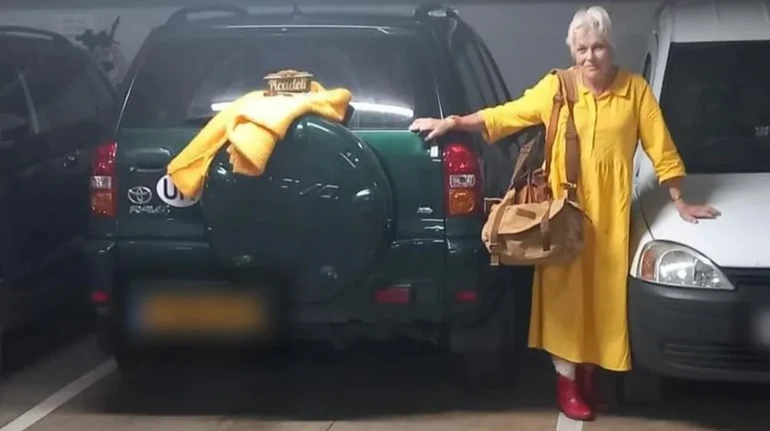A 69-year-old British aid worker was killed by a Russian drone strike in Ukraine’s Donetsk Oblast in June, but her family remains unable to retrieve her body or obtain a death certificate due to ongoing combat operations, according to BBC.
Annie Lewis Marffy from Silverton, near Exeter, died between 11-12 June while delivering humanitarian aid to Kramatorsk, according to the local police report. The document states she sustained “injuries incompatible with life” after the drone attack but notes that her body “remains in an area of active hostilities, making it impossible to conduct evacuation measures to transfer the body to the forensic medical examination department.”
Lewis Marffy had traveled to Ukraine as part of a self-funded mission organized by Aid Ukraine, a UK-based humanitarian organization. She departed for Poland in late May driving a green Toyota RAV4 alongside a former Welsh soldier who later became ill and returned home before crossing the Ukrainian border.
“She was brave, capable and determined, but we never wanted her to go. We were worried,” her son Charlie Lewis Marffy told reporters. Despite family concerns, he emphasized they supported her decision: “She was in touch with us every day. She spoke to my youngest brother constantly. She was excited, happy to be doing something meaningful.”
According to Aid Ukraine founder Katarzyna Bylok, Lewis Marffy crossed into Ukraine on 4 June and maintained regular contact with her family until 8 June. The organization’s last communication with her occurred on 10 June.
Police reports indicate that on 11 June, Lewis Marffy drove alone onto the Bakhmut highway – an area dubbed a “kill zone” due to its proximity to active front lines. She had parked her vehicle on the roadside when both she and the car were destroyed in the drone strike.
“They’re saying she died. Still, there’s no body. No possessions. No ID. Nothing,” Charlie Lewis Marffy said, describing his family’s frustration with bureaucratic obstacles.
The family has contacted Ukrainian authorities, local officials, and the UK’s Foreign, Commonwealth and Development Office requesting a death certificate based on the police report. Without official documentation, they cannot proceed with probate processes or formal grieving procedures.
“I’m dismayed. The Foreign Office has been vague, unhelpful,” Lewis Marffy said. The family explored private body retrieval options but found them either too dangerous or financially prohibitive.
Lewis Marffy had initially planned to hand over humanitarian supplies in Lviv, but the British volunteer insisted on continuing alone to Kramatorsk despite organizational recommendations, according to Bylok.
Charlie Lewis Marffy described his mother as widely traveled and “amazing, witty, kind, intelligent, adventurous.” He noted her previous work creating documentaries, assisting at soup kitchens and refugee facilities in Exeter, and caring for numerous animals at her home.
“I never saw her scared, she was totally fearless and maybe that’s contributed to her death in some way,” he reflected. “She was a force and it was her decision. We’re not looking to blame anyone. We just want a bit more information, some kind of resolution.”
A Foreign, Commonwealth and Development Office spokesperson confirmed: “We are supporting the family of a British woman who is missing in Ukraine and are in contact with the local authorities.”
The case highlights ongoing challenges faced by international volunteers operating in Ukraine’s contested regions and the bureaucratic complexities surrounding casualties in active combat zones.




